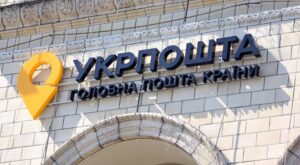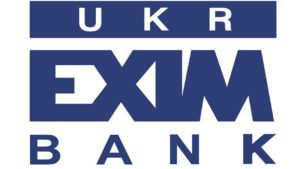
Representatives of the leadership of left-wing parties from the New National Front, which won the French parliamentary elections, have agreed to nominate Lucie Castets for the post of prime minister, La Voix Du Nord reported on Tuesday.
“We propose Lucie Castetz as prime minister to lead a government capable of responding to the social and environmental urgencies that our fellow citizens have expressed during the last election,” wrote Fabien Roussel, leader of the French Communist Party, which is part of the New Popular Front.
French media note that Castetz currently holds the position of head of the financial department of the Paris City Hall. It is noted that she actively opposed the recent pension reform in the country, which raised the retirement age.
On June 9, President Emmanuel Macron announced the dissolution of the National Assembly and called early legislative elections due to the defeat of the President’s social-liberal party, the Renaissance, in the European Parliament elections, which lost to the National Rally. In the early parliamentary elections on July 7, the pro-presidential coalition “Razom” lost to the left-wing bloc of parties “New People’s Front”. No political force gained an absolute parliamentary majority.
Earlier, the Experts Club think tank and Maksym Urakin presented a video analysis of the most important elections in the world in 2024, more details are available here – https://youtu.be/73DB0GbJy4M?si=eGb95W02MgF6KzXU

On July 23, the Ukrainian State Postal Communications Enterprise (USPCE) Ukrposhta (Kiev) announced its intention to conclude a contract with IC Guardian (Kiev) for the services of compulsory insurance of civil liability of owners of motor vehicles (OSAGO).
As reported in the system of electronic public procurement “Prozorro”, at the expected cost of the purchase of services1,151 million UAH price proposal of IC “Guardian” amounted to 363.3 thousand UAH,
The tender was also attended by “European Insurance Alliance” – UAH 369,01 thousand, “Inter-Policy” – UAH 524,9 thousand, “Euroins Ukraine” – UAH 1,036 million.
IC “Guardian” has been working in the insurance market since 2007. It is a member of the Presidium of the League of Insurance Organizations of Ukraine. Since January 2020 it has received the status of a full member of the Motor (Transport) Insurance Bureau of Ukraine (MTSBU), has the right to sell “Green Card” policies.

A power unit at a Ukrainian nuclear power plant has been connected to the power grid after scheduled repairs were completed ahead of schedule, the Ministry of Energy has announced.
“This will significantly affect the stability of the power system and reduce the electricity shortage caused by massive Russian attacks on the Ukrainian energy sector,” the ministry said in a Telegram message on Wednesday.
According to the report, in the western and partially southern regions, power supply restrictions have been canceled until 18:00, in all other regions, restrictions are in effect from 0:00 to 24:00.
As reported with reference to DTEK and regional power distribution companies, the schedules of hourly blackouts until 16:00 have been canceled in Kyiv, Kyiv, Donetsk, Dnipropetrovs’k, Sumy, Kirovohrad, Zhytomyr, Cherkasy, Rivne, Poltava, Zaporizhzhya, Chernihiv, Cherkasy, Khmelnytsky regions.

Ukraine will begin its participation in the 2024 Olympic Games in Paris, France, before the official opening of the Games, with a football match against Iraq on July 24. The 2024 Olympic Games in Paris will open on Friday, July 26, and the competitions will last until August 11.
At the same time, on July 24, the Ukrainian Olympic team will make its debut at the Olympic football tournament. In particular, the first round group stage match between Ukraine and Iraq will start at 20:00 Kyiv time.
All matches of the national team will be broadcast on the platforms of Suspilne Sport, local TV channels of Suspilne and Radio Promin.
In addition, on July 24, a fan zone for the Olympic Games will open in Urban Park at VDNKh, where the competitions will also be broadcast.
As reported, the Summer Olympics in Paris will take place from July 26 to August 11. Ukrainian athletes have received 124 licenses to participate in the 2024 Olympics in Paris.
The Ukrainian national team of 140 athletes will be represented in 26 out of 32 disciplines: badminton, boxing, freestyle and Greco-Roman wrestling, breaking, weightlifting, cycling (mountain bike and road), rowing slalom, rowing, canoeing, artistic gymnastics rhythmic gymnastics, judo, track and field, artistic swimming, swimming, rock climbing, diving, archery, benchrest shooting, shooting, modern pentathlon, tennis, table tennis, fencing and football.
At the last Tokyo 2020 Summer Olympics (which took place in 2021 due to the coronavirus pandemic), Ukraine took 44th place in the medal standings and became the 16th country in the ranking by the total number of medals won (1 gold, 6 silver and 12 bronze). At the 2016 Rio Olympics, Ukrainian athletes won 11 Olympic medals (2 gold, 4 silver and 5 bronze).

State-owned Ukreximbank has successfully sold a pool of land plots for construction in Kyiv region through the OpenMarket electronic trading system (SE SETAM of the Ministry of Justice of Ukraine). The total sale amounted to UAH 28,289,000. These land plots were acquired by the Bank as a result of work with non-performing loans (NPL) and sold at a price higher than the cost of acquiring them, which confirms the effectiveness of the Bank’s actions. In 2023, Ukreximbank’s proactive position and continuous work of the NPL division, despite all the existing obstacles, gave the bank a record result of UAH 2.7 billion in NPL repayments. In total, over the past 10 years, repayment of NPLs amounted to UAH 10.1 billion, 50% of which was received over the past 3 years.
“Our bank demonstrates good results of working with NPLs in 2024. With the sale of this land plot, the total portfolio of the Bank’s repossessed property sold in 1H2024 amounts to UAH 190 million, which confirms the success of the previous year,” said Anatoliy Lola, Director of Restructuring and Recovery Department of Ukreximbank.
The land plots with a total area of 12,755 hectares are located in Bucha district of Kyiv region (Kyiv-Svyatoshyn district). Their intended purpose is for construction and maintenance of a residential building, outbuildings and structures (personal plot). The land plots are located in an open field with a flat terrain, 4 km from the center of Bilohorodka village.
“Our portfolio includes many attractive properties, such as these plots, which will be used for housing construction,” said Pavel Gashkovets, Ukreximbank’s Management Board Member in charge of organizing work with distressed assets. “The bank regularly holds electronic auctions for the sale of property that was collateral for non-performing loans on the principles of transparency and openness. All information about the sale of such property can be found on the bank’s website in the “Currentauctions” section, and the entire list of property available for sale is given in the “Sale of own property” section.”
The village of Bilohorodka is located on the right bank of the Irpin River, 22 km from Kyiv and 8 km from the Tarasivka passenger railway station.
“The land plots have a favorable location and convenient transport links, which provides an excellent opportunity for residential development. We congratulate the bank and the buyer on the successful transaction,” said Oleksandr Mamro, CEO of SE SETAM.
TheOpenMarket auction (SE SETAM of the Ministry of Justice of Ukraine) is a simple and effective means of selling and purchasing property via the Internet. The online auction has been operating throughout Ukraine since 2014, and the total amount of sales since its launch is UAH 22.2 billion.

According to the Union of Poultry Breeders of Ukraine, in January-June 2024, Ukraine increased egg exports to 36.98 thousand tons. Including eggs in the shell, national producers exported 32.98 thousand tons for 33.711 million dollars.
At the same time, egg exports in the first half of 2023 amounted to 29.7 thousand tons. In particular, 25.737 thousand tons of shell eggs were exported for 34.745 million dollars.
The largest importers of Ukrainian eggs are EU countries, in particular Italy and Poland, as well as Singapore, the UAE and Israel.